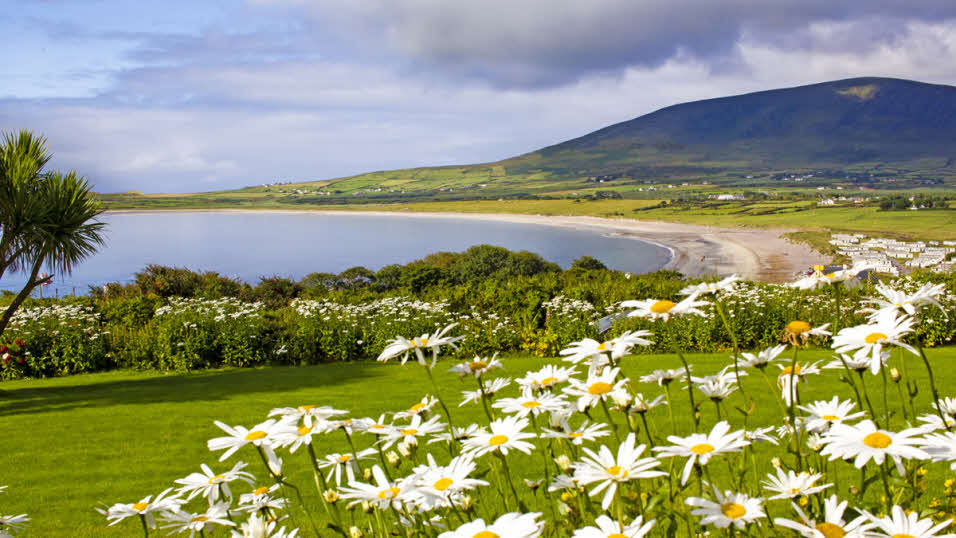- Ireland
- Ref.FandBIE1018

Ireland or Eire is a country in Northwestern Europe located on the territory of the island of Ireland.
Its area is 70 831 km2, of which 69 414 km2 drought and 1 417 km2 water area.
Ireland is divided into 4 historical areas. Their names are Lenster, Munster, Konaht and Ulster. The four districts are divided into 26 counties. The only county of Dublin is divided into 4 subgraphs.
The term “Republic of Ireland” is an official "description" of the country, not its constitutional name.
In fact, Eire is a parliamentary republic. The National Assembly is a bicameral: a Senate and a Lower Chamber. The president has predominantly representative functions, and executive power is exercised by the 15-member government, headed by the prime minister. Ireland has been a member of the European Union since 1973.
Ireland is among the richest, most developed and peaceful countries in the world, ranked fifth in GDP per capita and fifth in the HDI, thus having one of the highest levels of living standards in the world. The country has a high-quality education system, and as a genuine democratic country, it provides full freedom of speech, political and economic freedom.
The population of Ireland is growing fastest in Europe, with annual growth rates of 2.5%. The official languages of the country are Irish and English.
The climate is moderate, with an impact on the Gulf Stream. Due to the influence of the Atlantic Ocean, the winter is relatively mild and the summer is cool. Some of the areas are characterized by heavy rainfall and less sunny days, but almost all year round the climate is mild.
Residents of Ireland, according to the latest census, are 4,709,700.
The average life expectancy is 74 years for men and 80 for women, with 20% of Ireland's population under the age of 14, and the death rate is almost double low than the birth rate.
The official languages are Irish and English, but English has succeeded in all areas of life, so it is believed that English speakers are a high percentage or even 100%.
About 6.5% of Irish people come from EU countries, the rest are Africans, Americans and a small number of Chinese. Almost all belong to Christian denominations, there are small groups of Jews and Muslims (the latter mostly among African immigrants).
The proportion of houses in Ireland is 95%, while apartments are only 5%. It is harder to find housing in university towns (Dublin, Cork, Galway, Limerick) and regional centers, with co-ownership being the most beneficial alternative. The dwellings are offered mostly furnished. Usually contracts are concluded for a period of 6 months up to 1 year, but may be shorter. Some approximate rates for a monthly rental in Dublin: 1-bedroom apartment - € 700; 2-room - from € 750; 3-room - from € 1100; studio - from € 500. But in other district cities rents are significantly lower.
The Irish Government provides free primary and secondary education. School education for children and adolescents aged 6 to 16 is mandatory. Textbooks and school transport are provided against low fees.
First Level Education is primarily provided by public schools. The second level of education is acquired in three types of schools: secondary, vocational and general schools. This level of education consists of 3-4 years of junior cycle and 2 -3 years of senior cycle.
Approved third (higher) level courses are also offered for free. Admission to these courses is extremely competitive and places are allocated according to the estimates of the final exams from the secondary school.
The system of higher education in Ireland is made up of 7 universities, technology institutes and colleges.
When arriving in Ireland, it is mandatory to take a personal number - PPS number from the Social Services. For this purpose, it is necessary to provide an address where the person is permanently resident and a valid personal document.
All EU citizens have the right to stay in the territory of another Member State for more than 90 days, provided that they:
It is good to issue from Bulgaria the European Health Insurance Card, which allows for the right to medical assistance, which all citizens of the Republic of Bulgaria have permanent health insurance rights in the countries of the European Union, the European Economic Area and Switzerland.
When you start work in Ireland, you should contact your local tax office to register. The earnings you receive during the tax / tax year are taxable. The employer makes deductions from the worker's salary. Taxation in Ireland is organized by PAYE = Pay as you earn (pay as you get). This means that the payment of income tax is proportional and occurs periodically throughout the tax year. With PPS numbers, the worker can apply for tax credits by completing form 12A (Application for a tax credit certificate and standard minimum wage) and sending it to the tax office. It's good to do it right when you start work, even if it's just half-time or seasonal work.
The income tax is deducted from the first salary. Its amount depends on the level of salary and the amount of the tax credit. The tax rate is as follows: for single - 20% on the first earned 34 000 .00 €; 41% on all revenues over 34,000.00 €.
To be able to file your tax return and refund your taxes, you must have a P45 form that you receive from your employer after your working period ends. OR P60 - Issued at the end of the tax year.
Wages in Ireland are paid weekly and twice a month.
That is why you need the following sume of departure if you have pre-arranged work from Bulgaria - around 350 euro, plus money for rent and deposit, depending on the settlement in which you will live.
This website use cookies.